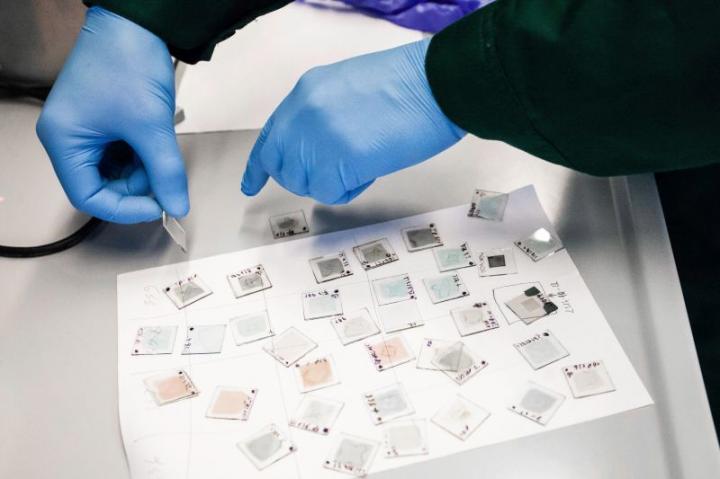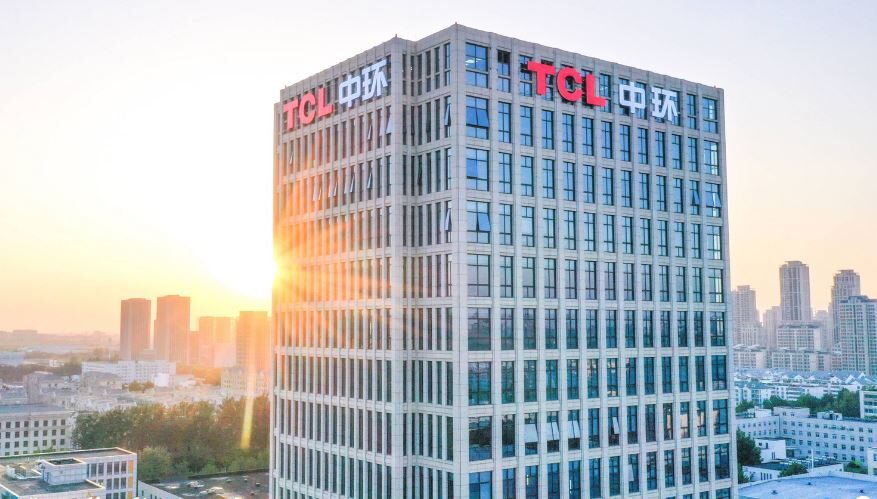Scientists at the Lithuania Kaunas University of Technology have revealed a few details about the 23.26% efficient perovskite-based copper indium gallium selenide (CIGS) solar cell they developed with the Helmholtz Zentrum Berlin (HZB).
The developers said the material used for the cell is made of molecules based on carbazole head groups with phosphonic acid anchoring groups and consists of 1-2nm of self-assembled monolayers deposited on the surface of the perovskite by dipping it into a diluted solution.
“Developed monolayers can be called a perfect hole-transporting material as they are cheap, are formed by a scalable technique and are forming very good contact with perovskite materials,” the research team noted.
Energy materials research center the HZB had achieved 21.6% for the same thin-film CIGS perovskite cell technology on a slightly smaller surface area in February 2017.
The scientists said the license to produce the material has been purchased by an unnamed Japanese company and they expect the two materials, dubbed 2PACz and MeO-2PACz, will soon be commercially available.
The world’s largest CIGS module manufacturer is Japanese company Solar Frontier, which is now a unit of oil refiner Idemitsu Kosan. Last January, Solar Frontier said it had set a new record for thin film solar cell efficiency of 23.35% – representing a 0.4% improvement on its previous record of 22.9%, set in late 2017.
This article was amended on 09/01/20. The original version wrongly stated the performance of the CIGS device was improved to 27.5%, however that efficiency level was related to a crystalline silicon technology. pv magazine apologizes for the error.
This content is protected by copyright and may not be reused. If you want to cooperate with us and would like to reuse some of our content, please contact: editors@pv-magazine.com.




1 comment
By submitting this form you agree to pv magazine using your data for the purposes of publishing your comment.
Your personal data will only be disclosed or otherwise transmitted to third parties for the purposes of spam filtering or if this is necessary for technical maintenance of the website. Any other transfer to third parties will not take place unless this is justified on the basis of applicable data protection regulations or if pv magazine is legally obliged to do so.
You may revoke this consent at any time with effect for the future, in which case your personal data will be deleted immediately. Otherwise, your data will be deleted if pv magazine has processed your request or the purpose of data storage is fulfilled.
Further information on data privacy can be found in our Data Protection Policy.